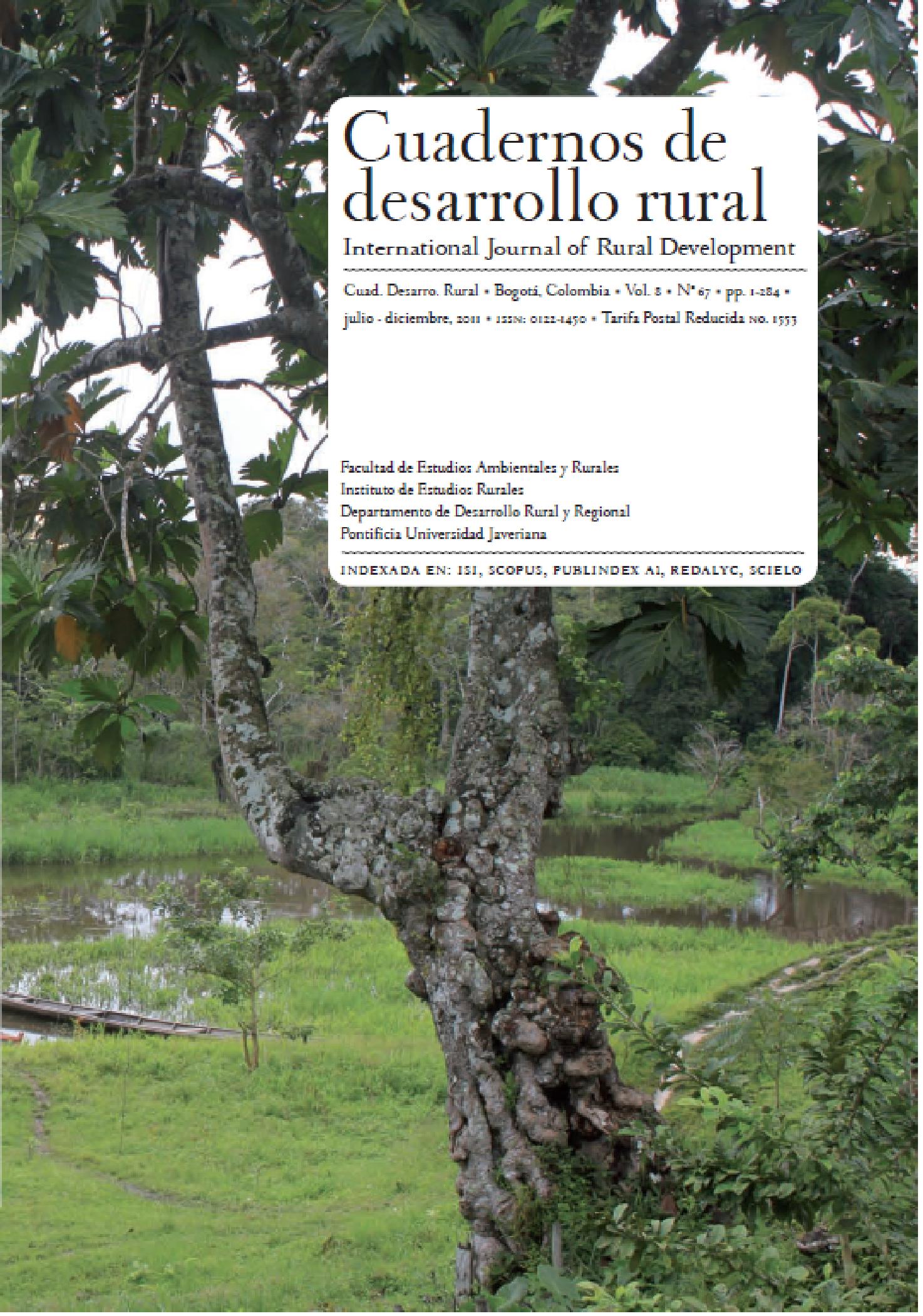Abstract
Este artículo explora cómo fueron evolucionando los enfoques de financiamiento rural durante lasúltimas tres décadas, en la medida que los paradigmas de desarrollo pasaron del modelo de Estadointerventor hacia el paradigma neoliberal. Se da especial atención a la pregunta acerca de cómolos programas de crédito rural pueden combinar propósitos de impacto social (alta cobertura) conbuenos desempeños de cartera (sostenibilidad financiera). La reflexión teórica es llevada a un caso concreto, a partir del análisis de la experiencia de 10 años del Programa Social Agropecuario (PSA)en Argentina. El estudio demuestra que el PSA logró alta cobertura de su población objetivo, peromuy bajas tasas de recupero de crédito. Basados en el análisis del componente financiero de esteprograma, el estudio presenta recomendaciones para futuras políticas de crédito en programas dedesarrollo rural.Cuadernos de Desarrollo Ruralis registered under a Creative Commons Attribution 4.0 International Public License. Thus, this work may be reproduced, distributed, and publicly shared in digital format, as long as the names of the authors and Pontificia Universidad Javeriana are acknowledged. Others are allowed to quote, adapt, transform, auto-archive, republish, and create based on this material, for any purpose (even commercial ones), provided the authorship is duly acknowledged, a link to the original work is provided, and it is specified if changes have been made. Pontificia Universidad Javeriana does not hold the rights of published works and the authors are solely responsible for the contents of their works; they keep the moral, intellectual, privacy, and publicity rights.
Approving the intervention of the work (review, copy-editing, translation, layout) and the following outreach, are granted through an use license and not through an assignment of rights. This means the journal and Pontificia Universidad Javeriana cannot be held responsible for any ethical malpractice by the authors. As a consequence of the protection granted by the use license, the journal is not required to publish recantations or modify information already published, unless the errata stems from the editorial management process. Publishing contents in this journal does not generate royalties for contributors.


